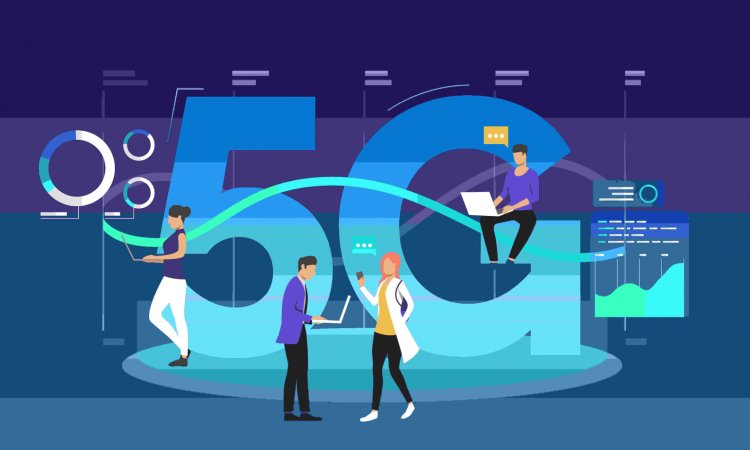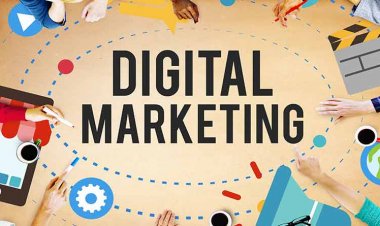5G Technology: Its Significance and Future Prospects for Businesses and Consumers
Learn about the significance and future prospects of 5G technology for businesses and consumers. Get insights into the advantages of 5G over previous generations, use cases, potential impact, challenges, and future outlook.

5G technology is the fifth generation of wireless communication that promises to revolutionize the way we use and interact with mobile devices. It represents a significant leap forward in terms of speed, capacity, and reliability compared to previous generations of wireless technology. 5G technology is designed to provide faster mobile data speeds, low latency, and support for the Internet of Things (IoT), which is critical to unlocking the full potential of IoT and other emerging technologies. The introduction of 5G technology has far-reaching implications for businesses and consumers alike, and its significance cannot be overstated. This article will explore the advantages of 5G over previous generations of wireless technology, the use cases for 5G technology in various industries, the potential impact of 5G on businesses and consumers, the challenges and obstacles to the widespread deployment of 5G technology, and the future outlook for 5G and its potential applications.
Use Cases for 5G Technology in Various Industries
5G technology has the potential to transform a number of industries, some of them are:
-
Healthcare
5G technology can enable telemedicine and remote monitoring of patients, allowing healthcare providers to deliver care to patients without the need for physical visits. -
Manufacturing
5G technology can support the use of autonomous robots and connected devices in manufacturing environments, improving efficiency and reducing the risk of human error. -
Retail
5G technology can enhance the in-store shopping experience by enabling real-time customer engagement, providing personalized recommendations, and allowing customers to place orders and make payments quickly and easily. -
Transportation
5G technology can support the development of autonomous vehicles, improving safety and reducing the risk of human error. It can also support real-time traffic monitoring and management, reducing congestion and improving traffic flow. -
Agriculture
5G technology can support precision agriculture, allowing farmers to collect and analyze data on soil health, crop health, and weather conditions in real-time. This can help farmers to make data-driven decisions and improve the efficiency of their operations. -
Energy
5G technology can support the implementation of smart grid systems, enabling real-time monitoring and control of energy distribution, reducing the risk of blackouts, and improving energy efficiency. -
Public Safety
5G technology can support real-time communication between first responders and other public safety agencies, improving response times and increasing the safety of both responders and the public.
These are just a few of the many use cases for 5G technology in various industries. The full potential of 5G technology will likely become apparent as it continues to be deployed and adopted more widely.
Advantages of 5G over Previous Generations of Wireless Technology
Some of the advantages of 5G technology are:
-
Faster speeds
5G technology promises to deliver significantly 20 times faster compared to previous generations of wireless technology. This will allow users to download and upload large files, stream video content, and engage in online activities with less buffering and lag. -
Increased capacity
5G technology is designed to support a much larger number of connected devices compared to previous generations. This increased capacity will support the growth of IoT and other emerging technologies. -
Low latency
5G technology promises to deliver low latency, which is the amount of time it takes for a device to receive a response after sending a request. This is critical for real-time applications such as virtual reality, autonomous vehicles, and remote surgery. -
Improved reliability
5G technology promises to deliver more consistent and reliable connections compared to previous generations of wireless technology. This will reduce dropped calls and improve the overall user experience. -
Enhanced security
5G technology incorporates advanced security features to protect users from potential cyber threats. This is important in today's world, where cyberattacks are becoming increasingly common and sophisticated. -
More efficient use of spectrum
5G technology uses the spectrum more efficiently than previous generations, which will allow for more data to be transmitted in the same amount of spectrum. This will help to mitigate the growing demand for bandwidth.
The Potential Impact of 5G on Businesses and Consumers
The impact of 5G technology on businesses and consumers is expected to be significant. Some potential impact of 5G on business and customers includes:
-
Improved connectivity
5G technology offers significantly faster mobile data speeds and lower latency compared to previous generations of wireless technology. This can provide businesses with more reliable and efficient connectivity, improving productivity and enabling new business models. -
Increased innovation
5G technology can enable new and innovative applications, such as virtual and augmented reality, which can have a significant impact on a wide range of industries. -
Improved customer experience
5G technology can improve the customer experience by enabling faster and more responsive mobile devices, providing faster and more reliable internet access, and supporting new and innovative applications. -
Enhanced productivity
5G technology can support the use of connected devices and the Internet of Things (IoT), allowing businesses to automate many processes and tasks, reducing the risk of human error and improving efficiency. -
Cost savings
5G technology can help businesses to reduce costs by enabling more efficient operations and reducing the need for physical infrastructure, such as cables and servers. -
Better access to services
5G technology can provide consumers with better access to a wide range of services, including healthcare, education, entertainment, and financial services. This can improve quality of life and increase access to services for people in rural and remote areas. -
Improved safety
5G technology can support the development of new safety technologies, such as autonomous vehicles, which can improve safety and reduce the risk of accidents.
These are just a few of the many potential impacts of 5G on businesses and consumers. As 5G technology continues to be deployed and adopted more widely, its impact is likely to become even more significant.
Challenges and Obstacles in the Widespread Deployment of 5G Technology
Despite the promise of 5G, there are a number of challenges and obstacles that must be overcome in order to achieve widespread deployment of the technology. Some of the challenges are:
-
Technical Challenges
Implementing 5G technology requires significant investments in new infrastructure, including 5G-compatible mobile devices, network equipment, and cell towers. -
Cost
The cost of deploying 5G technology and upgrading existing infrastructure can be significant, and some businesses and consumers may not be able to afford to upgrade their devices or services. -
Regulation
The deployment of 5G technology is subject to a range of regulatory requirements and restrictions, including licensing, spectrum allocation, and zoning laws, which can vary from country to country and region to region. -
Competition
The deployment of 5G technology is likely to be highly competitive, with multiple companies and governments competing for resources and market share. -
Security Concerns
5G technology raises new security concerns, such as the risk of hacking and the protection of sensitive data. -
Interference
5G technology operates at higher frequencies than previous generations of wireless technology, which can increase the risk of interference with other technologies, such as GPS and Wi-Fi.
These are some of the main challenges and obstacles that must be overcome in order to ensure the widespread deployment of 5G technology. Overcoming these challenges will require a combination of technical innovations, investments in infrastructure, and collaboration between businesses, governments, and consumers.
The Future Outlook for 5G and its Potential Applications
The future outlook for 5G technology is positive, with widespread deployment expected over the next several years. Some of the potential applications are:
-
Widespread Adoption
5G technology is expected to become widely adopted in the coming years, with predictions of billions of connected devices by the end of the decade. -
Enhanced User Experience
5G technology promises to deliver enhanced user experiences, including faster download speeds, lower latency, and more reliable connections. -
IoT and Industry 4.0
5G technology is expected to play a critical role in the growth of the Internet of Things (IoT) and Industry 4.0, enabling the development of smart cities, connected homes, and autonomous vehicles. -
Augmented and Virtual Reality
5G technology is expected to drive the growth of augmented and virtual reality technologies, providing consumers with new ways to experience and interact with the digital world. -
Business Transformation
5G technology is expected to bring about significant business transformations, particularly in sectors such as healthcare, retail, and manufacturing, by enabling new levels of automation and data-driven decision-making. -
Economic Impact
5G technology is expected to have a significant impact on the global economy, creating new jobs and driving economic growth in countries and regions that invest in the technology.
In conclusion, 5G technology is poised to have a significant impact on businesses and consumers alike. With its faster speeds, lower latency, and more reliable connections, 5G has the potential to transform a number of industries and enable new experiences and applications. While there are challenges and obstacles to overcome, the future outlook for 5G is positive, and its widespread deployment is expected to have a profound impact on the world of technology.
What's Your Reaction?




































































































